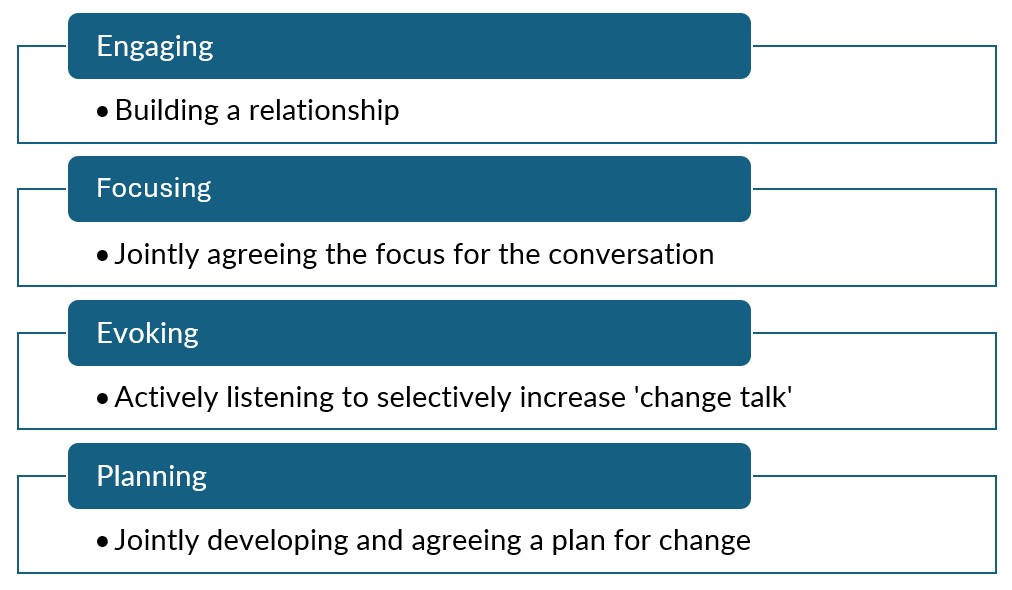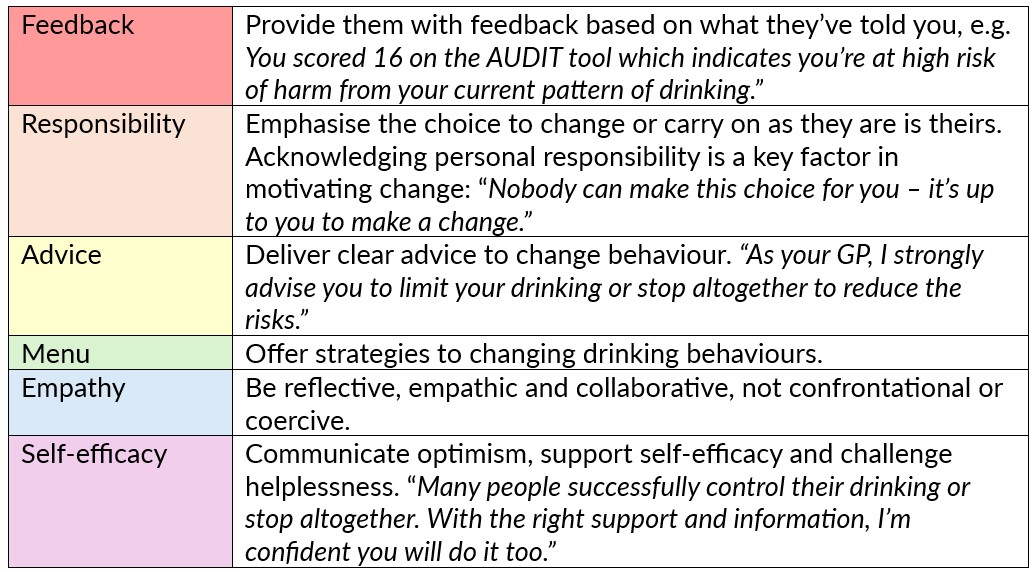_ RCGP Learning
Blog entry by _ RCGP Learning
Written by Dr Emma Nash
The Chief Medical Officer’s low-risk drinking guidelines recommend that adults do not drink more than 14 units of alcohol a week, spread evenly over three or more days.1
Although around 20% of the population report drinking no alcohol at all, a significant proportion of adults regularly drink over the recommended amount, ranging from 9% of Northern Irish women to 32% of English men.2 The consequences of excessive alcohol consumption are significant, with 10,473 deaths from alcohol-specific causes in the UK in 20233; many more are alcohol-related.
The public health approach ‘Making Every Contact Count’ (MECC)4 promotes the importance of making the most of opportunities to effect behaviour change. It encourages the use of routine interactions with people to offer brief advice and support them in making positive changes to their physical and mental health and wellbeing. Alcohol brief interventions are one such example.
In the context of alcohol, a brief intervention can be described as: “a short, evidence-based, structured conversation about alcohol consumption with a patient that seeks in a non-confrontational way to motivate and support the individual to think about and/or plan a change in their drinking behaviour in order to reduce their consumption and/or their risk of harm”.5
Brief interventions take 5-15 minutes to deliver and are ideally reinforced over further sessions. Multiple models exist, but ultimately the purpose is to focus the person’s attention on their lifestyle, highlight the reasons for change and potential strategies to do it, and empower the person to make the change. Whilst time constraints make a GP consultation challenging to deliver this, even a very brief intervention, with follow-up to discuss further, is useful.
Enquiring is the first stage – simple questions about alcohol consumption, or something more structured such as an AUDIT-C – can help identify where there is a problem, or at least bring it to mind. Behavioural change is a process rather than an event and even moving from the pre-contemplation to the contemplation stage of change is positive.
The brief intervention itself varies in form and needs specific training dependent on the model used. However, a common theme is motivational interviewing. Key elements of motivational interviewing include an emphasis on patient autonomy and patient-centred collaborative approach built on acceptance. One model of motivational interviewing by Miller and Rollnick6 describes four processes:

The extent to which motivational interviewing features in the brief intervention depends on the particular model chosen.7
One example of a brief intervention tool is the FRAMES model.8,9

What you are able to suggest in the ‘Menu’ section depends on what is available locally in terms of support. However, behavioural strategies may include setting personal drinking limits and sticking to it; alternating alcoholic drinks with soft drinks; switching to low alcohol drinks; having regular alcohol-free days; identifying high risk situations for heavy drinking and creating a management plan; engaging in alternative activities to drinking.
Whilst these interventions can appear complex or arduous, they are only brief and are designed to be delivered in snippets, with reinforcement. The evidence base for the use of brief interventions is good, particularly in a primary care setting10,11 and have the potential to have a significant impact on the future health of our patients.
Further reading
National Institute on Alcohol Abuse and Alcoholism. Conduct a brief intervention: Build motivation and a plan for change.
NHS England. eLFH - Alcohol identification and brief advice.
ScotPHO. Alcohol: treatment for alcohol misuse.
References
- English, Scottish, Welsh and Northern Irish Governments. UK Chief Medical Officers’ Low Risk Drinking Guidelines. 2016.
- Alcohol Change UK. Alcohol statistics. Updated 2025.
- Office for National Statistics. Alcohol-specific deaths in the UK: registered in 2023. 2025.
- Public Health England, NHS England, Health Education England. Making Every Contact Count (MECC): Consensus statement. 2016.
- Scottish Government. Local delivery plan: Alcohol brief interventions. National guidance 2019-2020. 2019.
- Miller WR, Rollnick S. Motivational Interviewing, 3rd ed. Helping people change. New York (NY): Guilford Press; 2012.
- World Health Organisation. Alcohol brief intervention training manual for primary care. WHO, 2017.
- Bien T, Miller WR, Tonigan JS. Brief interventions for alcohol problems: a review. Addiction, 1993. 88(3): p.315-336.
- Drug and Alcohol Clinical Advisory Service. Fact sheet. FRAMES – Brief intervention for risky or harmful alcohol consumption.
- World Health Organisation. Global status report on alcohol and health 2014. Luxembourg: WHO, 2014.
- Platt L, Melendez-Torres GJ, O'Donnell A, et al How effective are brief interventions in reducing alcohol consumption: do the setting, practitioner group and content matter? Findings from a systematic review and metaregression analysis. BMJ Open 2016; 6: e011473.